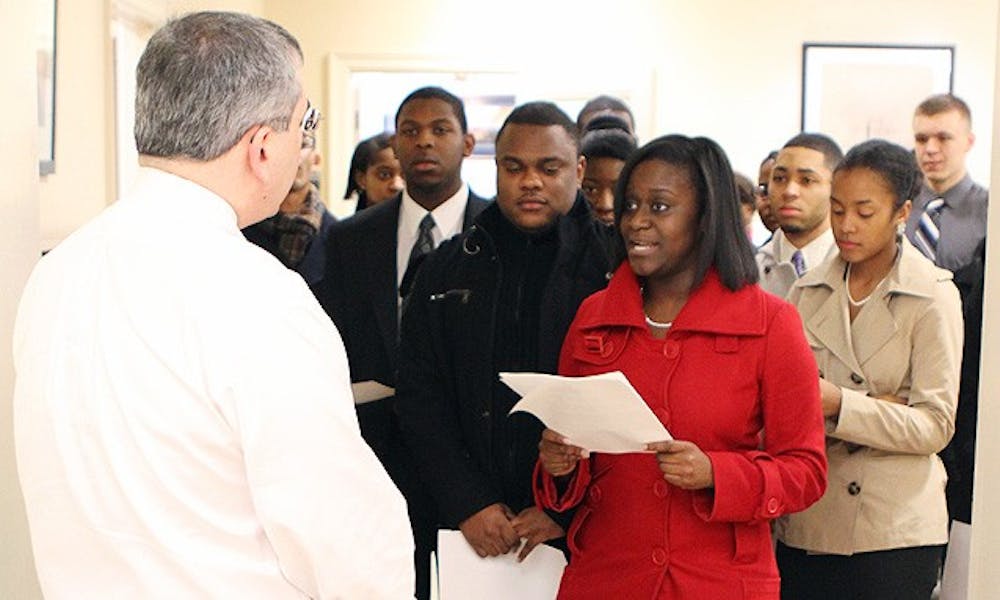The Black Student Alliance is calling on Duke administrators to adequately address the concerns of the black community.
Approximately 20 BSA members presented the Black Culture Initiative, a document outlining the concerns of black students and recommendations to address them, to Michael Schoenfeld, vice president for public affairs and government relations, Tuesday morning. The BSA members walked from the Bryan Center to the Allen Building at about 9 a.m., asking to speak to President Richard Brodhead.
“Duke is failing to realize that the black community is the Duke community,” said BSA President Nana Asante, a senior, at a meeting following the presentation.
The concerns motivating the Black Culture Initiative are of great importance to the University, Schoenfeld said. He agreed to share the document with other senior administrators.
The recommendations include an endowment to help institutionalize funding for culturally significant events and programming, academic enrichment and personal and professional development; a concerted effort to find a suitable location for the Mary Lou Williams Center for Black Culture; a renewed commitment and expansion of the Black Student Alliance Invitational weekend; and an explanation of the role of special considerations in the admissions process.
The University should also form a working group tasked with assessing and improving the academic social climate for black students at Duke and increasing the number of black faculty and administrators, according to the document.
“This effort should be similar in scope to the Duke Women’s Initiative, with clear and measurable goals for improving the experiences of black students on campus,” the document stated.
Administrators have not been forthright in responding to the concerns raised by BSA, said BSA Executive Vice President Marcus Benning, a sophomore. The presentation followed several earlier attempts by BSA to schedule a meeting with administrators and Tuesday’s events placed the administration in a position to address BSA members directly.
“We don’t feel that Duke’s senior academic officials directly addressed our concerns in their response to The Chronicle,” Benning said in an interview. “They didn’t mention the words ‘race’, ‘black’ or the phrase ‘affirmative action’ in their response, and we feel that this was a deliberate attempt to avoid directly addressing the issues at hand—the study directed at black students, uncertainty around the location of the Mary Lou Williams Center and BSAI.”
Benning noted that the unpublished study claiming that black students disproportionately switch to less rigorous majors, which recently gained national attention, was not a primary concern for BSA. The larger issue pertains to the implications of the study and the “less-than-adequate” response from the administration, he said.
“It’s about University officials not directly addressing the issues in the research, and not providing any recommendations to narrow the achievement gap, if such academic disparities exist,” Benning said.
Get The Chronicle straight to your inbox
Sign up for our weekly newsletter. Cancel at any time.

